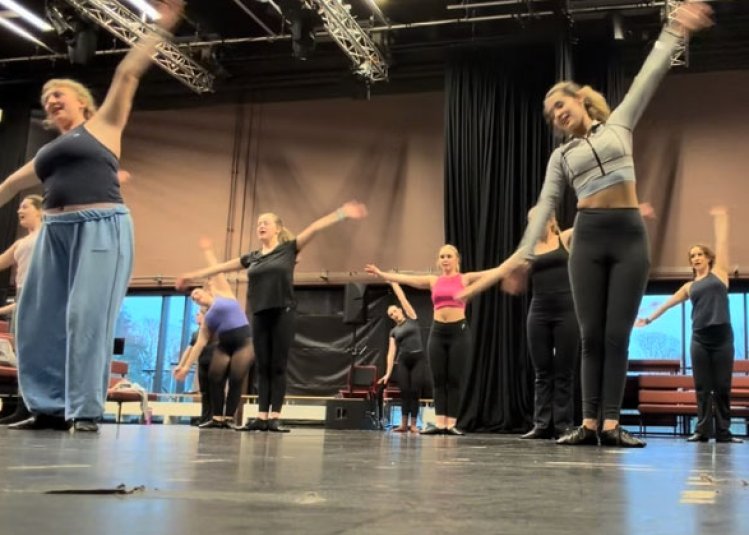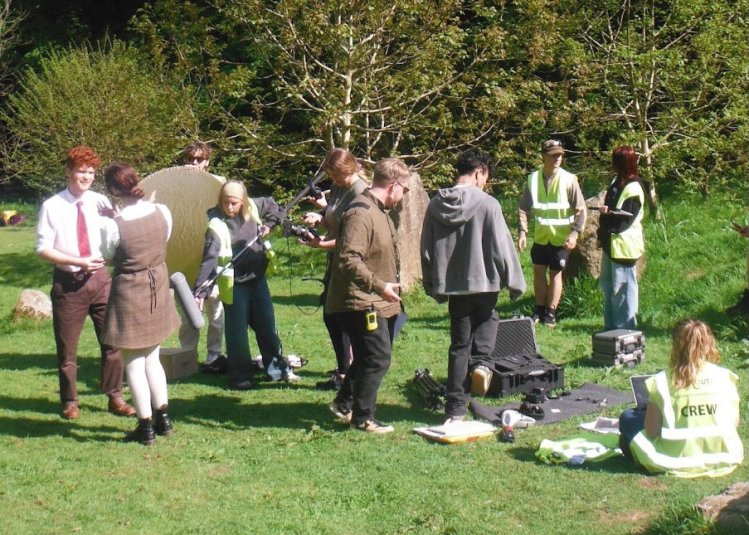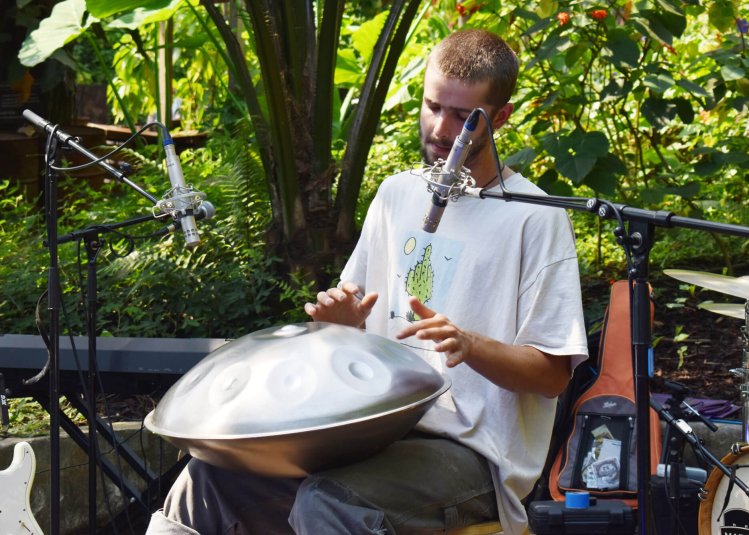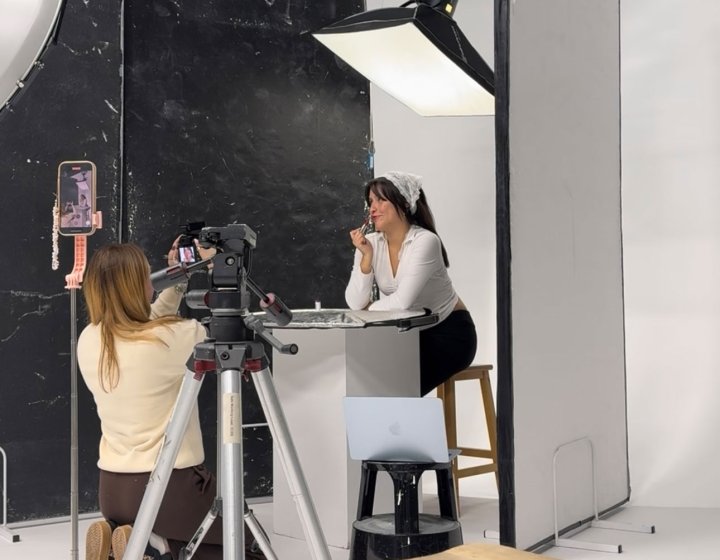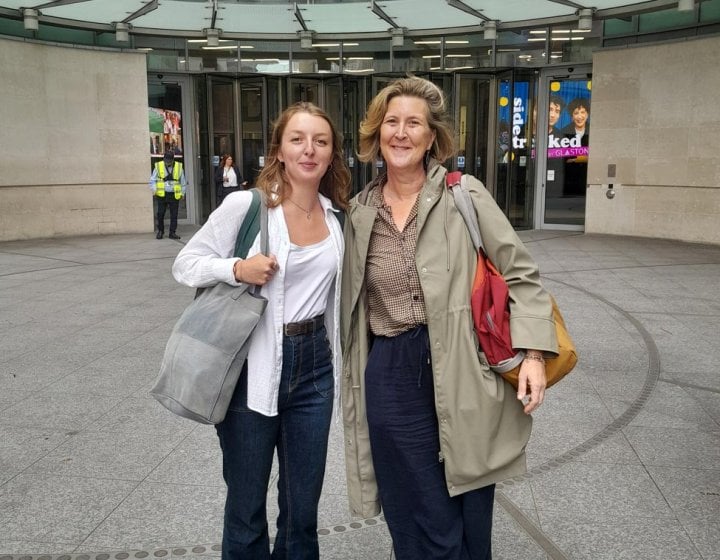A Reader's Guide to Finding New LQBTQ+ YA Fiction | By Lewis Hughes
23 February 2023
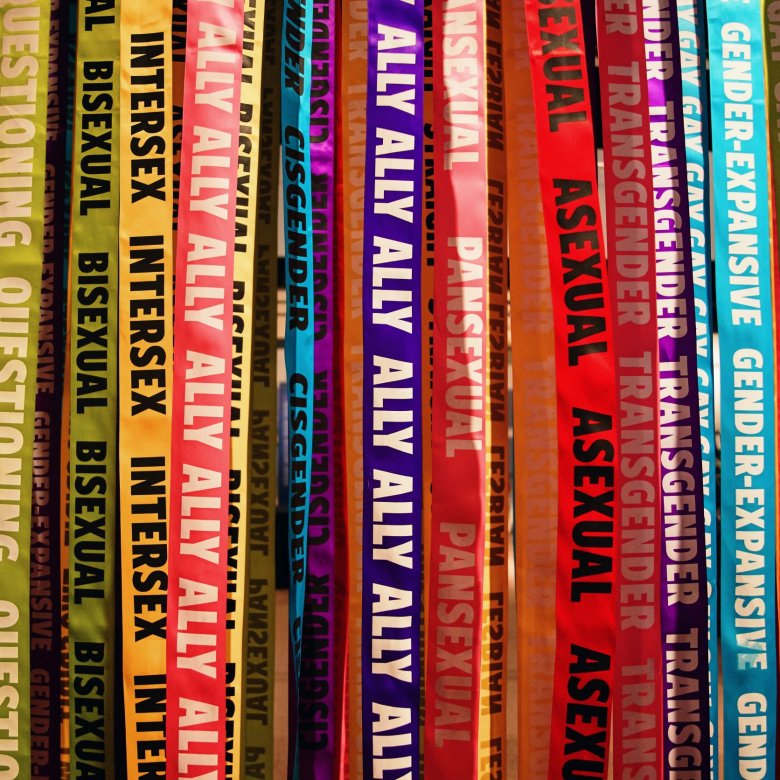
This blog post was written by English with Creative Writing BA(Hons) student Lewis Hughes for FalWriting.
Even today, in the early 2020s, it can be a struggle for a prospective reader of LGBTQ+ fiction to find the book that they need. Most bookstores do not dedicate space or allocate shelf markers to highlight their LGBTQ+ books so it becomes hard for readers to identify what story will speak to them unless they go into the store knowing what they need or there are two people of the same gender making out on the cover (tends to be give-away).
Amidst all of this, many organisations – particularly in the U.S.A. – aim to censor the books that children have access to by banning certain books in schools and libraries. Of course, the books that these organisations set out to ban include content that challenge white supremacy, cisnormativity and heteronormativity just with their characters’ very existence. As a result, I wanted to talk to ten authors of LGBTQ+ Young Adult fiction and find out where they believe readers will most easily be able to find out about new LGBTQ+ YA books.
3 ways to find new LGBTQ+ YA books
The power of social media
Most authors (seven of ten) highlighted social media as a fantastic resource for readers to find LGBTQ+ YA content. Becky Albertalli, author of Simon Vs. The Homosapiens’ Agenda, summed it up best in that “following authors and content creators” that center LGBTQ+ YA content is essential for readers looking for these kinds of books because they are harder to find than their cishet counterparts. This means that prospective readers must rely on the community around these books to find what they’re looking for as can be found under the hashtags #LGBTBooks (on Twitter), #LGBTBookstagram or #LGBTBookTok depending on the platform you’re using.
Xan Van Rooyen, author of My Name is Magic, highlights how following “bookish people on instagram, tiktok, and twitter as well as a lot of publishers who I know put out queer titles” has allowed them to find the titles they’re looking for, proving the reliance on community to find LGBTQ+ YA books as publishers/ bookstores often do not highlight them enough. Sher Lee, author of 2023’s Fake Dates and Mooncakes, put particular emphasis on the importance of “Bookstagrammers [who] are specifically queer-friendly” and said that a good resource to find books was bookstagrammer’s “lists specifically for queer books”.
Aaron Aceves and Cameron James, authors of This is Why They Hate Us and Cassidy is Queen, respecitvely, both cited Twitter as a site that has allowed them to find many queer books, so long as you’re following the right accounts that uplift these books. Lucas Delrose (Cherry on Top) added to this in that Twitter is a great resource for finding “indie [independently published] queer books” which also means that you’re supporting an independent “queer artist which sometimes is just as important as reading their work”. As mentioned, the highlight of finding queer books, particularly in YA fiction, is reliant on community and finding the right people who will give you the best recommendations possible.
LQBTQReads
Another amazing community resource put together by Dahlia Adler, author of the LGBTQ+ YA books Cool for the Summer and Home Field Advantage, is the website LGBTQReads. The site was stressed as an amazing place for readers to find LBGTQ+ content, particularly YA, by the majority of the authors I talked to. Aceves called the site a “very helpful resource” while Albertalli described it as “unbelievably comprehensive and thoughtfully organized”. Jen Ferguson, author of The Summer of Bitter and Sweet, considers LGBTQReads a “go-to” when looking for LGBTQ+ YA books.
Adler’s LGBTQReads posts announcements of new and upcoming LGBTQ+ books, has conversations with authors and sorts books into categories based on different aspects of representation for easy accessibility. The site allows easy access whether you’re looking specifically for ‘Children’s’, ‘Middle Grade’, ‘Fiction’, ‘Non-Fiction’, ‘Poetry’ or ‘Young Adult’ books with extremely easy to navigate drop down menus allowing the prospective reader to find exactly what to look for.
Another amazing feature of the site can be found under the ‘Rep’ dropdown menu where readers can find their next book based on the type of representation they would like to read about. The site has organised so readers can search within ‘Age’, ‘Body Diversity’, ‘CAN, UK, AND AUS-BASED Fiction by Province/County/State’, ‘Disability/Neurodivergence’, ‘Family Dynamics’, ‘Gender Identity/Presentation’, ‘Nationality/ Tribal Affiliation’, ‘Non-Binary Pronouns’, ‘Race/ Ethnicity’, ‘Religion/ Atheism’, ‘Romantic/ Sexual Orientation’, ‘Setting (Outside US/CAN/ENG/AUS)’, and ‘Trauma’.
Adler’s extensive categorisation – each section listed above contains detailed lists i.e. over a dozen sexualities listed in the ‘Romantic/ Sexual Orientation’ section – is also sorted by age categorisation so that it is clear to every reader exactly the kind of book they will get and who it is appropriate for. I have personally used LGBTQReads many times for my own reading habits and also to help recommend books online and it is an absolutely fantastic and comprehensive resource.
The community! ?
A through-line of this guide has been the power of community to help one another find books often not put into the spotlight enough by traditional publishing’s marketing efforts or cishet bookish online platforms. Jen Ferguson highlighted LGBTQReads as a great resource but also brought We Need Diverse Books forward as an amazing resource. We Need Diverse Books is a non-profit group who advocate for “essential changes in the publishing industry to produce and promote literature that reflects and honors the lives of all young people”. The group started the hashtag ‘#BooksSaveLives’ to champion diverse books and fight back against book bans so that all children see themselves reflected in the books they read.
Cameron James went on to say that they ‘sign up to any newsletters [they] see’ such as the newsletter of QueerLit, an independent LGBTQ+ bookstore in Manchester. Independent Queer bookstores are the backbone of the community in many ways with QueerLit and London’s Gay’s The Word holding particular cultural and historical significance.
In addition to community resources and bookstores, Jonny Garza Villa, author of Fifteen Hundred Miles from the Sun, pointed out that “authors are very responsible and on social media to be sociable”, stating the best way to find the diverse books you’re seeking as a reader is to “find (and follow and support) a QTBIPOC [Queer, Trans, Black, Indigenous, Person of Colour] author” who will not only be able to bring forward their own books as recommendations as to what you’re looking for but will also consistently supporting their community around them and uplift similar books that could fit what you’re looking for. Villa recommends asking these authors – be it on Instagram, Twitter, their contact forms etc – ““What queer books written by queer Asian authors, queer Black authors, queer Latine authors, queer Indigenous authors would you recommend?”” and says that they are “always ready and willing to give some book recs”. By the way, you can find them @jonnyescribe on Twitter and @jonnyinstas on Instagram!
